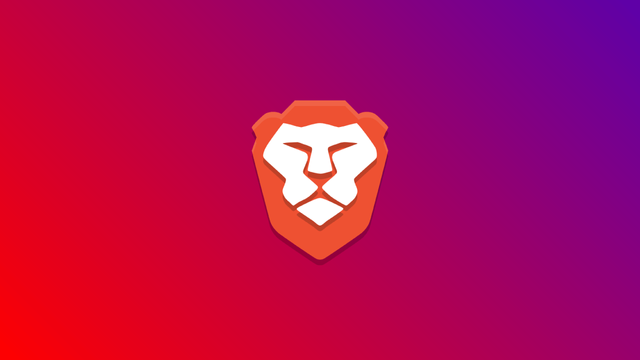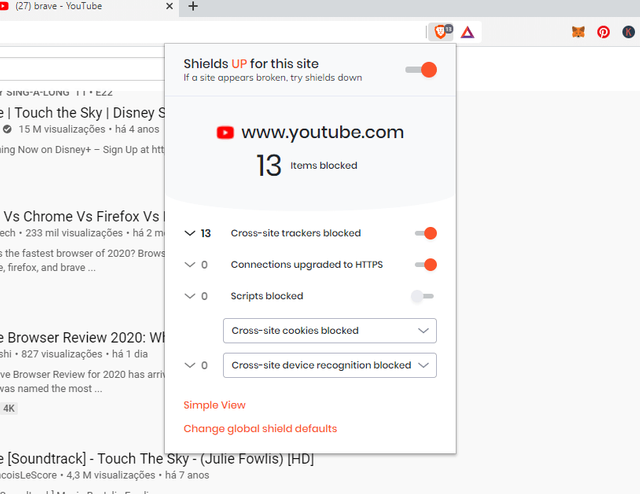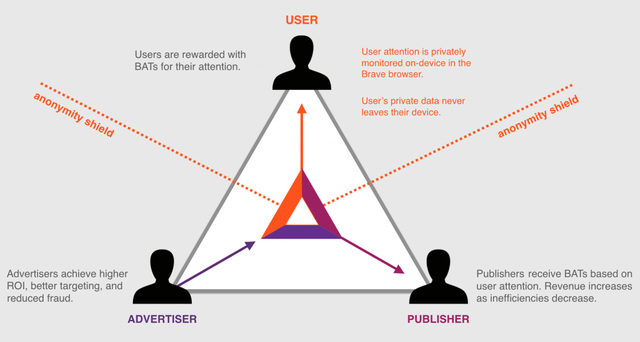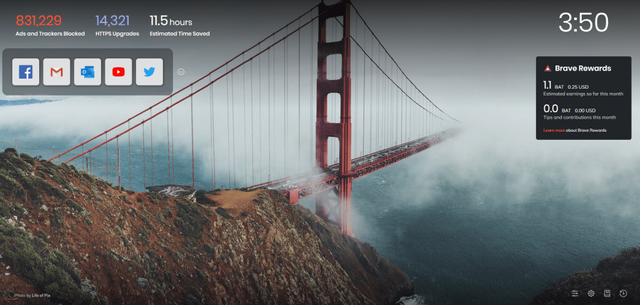
Brave Browser is the new kid in the web browser sphere. This is a project that I'm following for a long time now and that I'm quite interested to see where it goes next. But what is Brave? How is it different from the others and why should you care about it? Is this a good option for creators? Let's find out.
Understanding the Brave Browser
Brave, in a Nutshell
Brave is a free, open-source, chromium-based browser, focused on privacy, speed and safety, which is achieved by blocking trackers. This browser also stands out by adopting a completely different view regarding ad display.
Brave was created by Brendan Eich which is known for creating Javascript and being a co-founder of Mozilla & Firefox. He is pretty much the person responsible for the web we know today, since Javascript is the main technology behind website interaction.
A "Brave" new concept for the web
Before getting into Brave's features, it's important to understand its concept and what problems it might solve.
Brave tackles a real issue that no one is talking about: the amount of trackers, cookies and data collection parasites that is infecting the web. In fact, the usage of these elements became a standard on our web.
In their pitch, they point out that these elements tend to make our web experience slower, drains our devices batteries and we end up paying more in data charges.
So they decided to create a browser that natively block trackers, ads and other data-collecting elements, using their Brave Shield feature. This way, they claim you'll have huge improvement in browsing speed, prevent from draining as much battery, and save money on mobile data.

Brave Shield
The Brave Shield feature allows you to decide, per page, if you want to block ads, cookies and trackers, to allow some of these factors in, or to remove the shield all together.
Brave Browser's focus on privacy
Besides blocking trackers and other data-collecting software, Brave wants to take a step further into privacy by adding Tor and DuckDuckGo into their private window mode.
With Tor, you'll be able not only to hide your history, but also to mask your location from other websites. This is achieved by routing your internet browsing through multiple servers before you enter your desired website. Besides, every jump is encrypted in order to improve your privacy.
DuckDuckGo comes into play from another angle. Mainstream search engines, such as Google and Bing, usually collect data from user searches whether they want it or not. In a privacy context, this is not ideal.
So, by using DuckDuckGo on Brave's privacy mode, you are avoiding letting other search engines know about your searches.
Also, Brave forces the use of https on websites, which makes your browser experience more secure.
A "Brave" new concept for user attention
The way Brave handles user attention is quite unique. They look at ads as an intrusive element to users which might not be the best way to "properly valuing user attention".
To achieve this, Brave has two key components: a ledger system that captures user attention anonymously (your data never leaves your browser's local storage), and a cryptocurrency called Basic Attention Token (BAT) to properly reward each party.

This is the way BAT works with advertisement
Source
Users are able to choose if they want to see ads, which are delivered through notifications. Then, they will be rewarded for their attention with BAT tokens.
On the other hand, Advertisers will get better targeting, which means that they won't need to spend as much to get to the right audience (aka better ROI).
The money spent by advertisers will go directly to Brave, which in turn will distribute 70% of the money to its Users.
Content Creators, on the other hand, will be able to receive BAT donations from their subscribers, fans, followers, readers, etc. These can be monthly-recurring donations, or just a one-time donation.
My thoughts on Brave Browser
Now that you understand Brave a bit better, I would like to share with you my experience with this browser.
The first thing I noticed when I opened Brave for the first time was how familiar it was for me. When I started browsing, I noticed the hotkeys I used on Chrome were responding on Brave as well.
And that's when I found out that Brave is based on Chromium, the technology underneath Google Chrome. This means that Brave's structure is quite similar to Chrome's, which is great since Google's browser is quite intuitive and easy to use. You'll find this quite evident in the settings menu, where every section is organized in the same manner.
It's worth mentioning that due to its structure, Brave allows you to install Chrome extentions, which is a big deal for me personally.
Brave Shield and its implications
As we saw before, Brave Shield is the feature responsible for blocking trackers and ads. And let me tell you, it's quite noticeable how this feature impacts your browser experience on multiple levels.
First of all, pages seem to load significantly faster on Brave compared with other browsers due to its Shield. This is quite noticeable on heavier websites, so good job in this front Brave!
Ads are indeed blocked, but some websites require you to take down the Brave Shield in order to function properly. Well, this is something that happens with any add-blocker, so this is not an issue with Brave.

Brave Browser's new tab screen
Also, Brave is not able to block webpages that are meant to be ads.
Meaning that if you enter on a website and it opens another tab in your browser, and that's a blog post with scammy intent or something of the sorts, Brave won't be able to block it.
Well, I guess this is quite understandable as these kinds of content are not considered as "ads" as we know them, so keep this in mind.
In regards to security and privacy, I don't have the tools to compare this browser with others. But it surely feels safe due to the amount of warnings I get when entering in possibly scammy websites.
Brave's stand to user attention
I believe that Brave’s stand to user attention it's quite interesting. The fact that they are trying to give power back to the user while making content creators and publishers happy at the same time is quite optimal.
Users are bombarded with advertisements everyday without having a choice. But now they have the choice of watching ads without imposing, which in my opinion is much better than what we have now.
I've been following the basic attention token project for almost 3 years now, and it makes me quite happy to know that Brave is delivering what they said they'd do.
I think it's still too soon to know whether this different mindest to value attention will have a future. After all, Brave is still young compared to other browsers and its approach is not loved by everyone.
The way ads are delivered nowadays is quite standardized, so I think it will be hard to adopt a more user-centric approach. Nevertheless, I believe this is the right mindset for an healthier internet moving forward, so let's see where it goes.
From Google Chrome to Brave
I confess it took me some time to start using Brave since I got everything connected through Google Chrome’s ecosystem. I mean you can sync bookmarks and preferences with all your devices and that's something really useful to me.
Hell, Google Chrome is almost an operating system on the web. That's how good it is, and that's why its market share is so high (approximately 67%, according to netmarketshare.com).
Still, Brave has a lot of interesting features as well, and this is a project I was looking forward since late 2017. Besides, the fact that Brave endorses cryptocurrencies as well as a mindset that rewards everyone in an ecosystem, including users, is great.
So, I decided to use Brave as my main browser.
To be honest I'm quite happy with that choice, but there is a significant problem that needs to be solved: some Google Tools do not work as well on Brave as well as they do on Google Chrome.
For instance, Pagespeed Insights did not work on Brave until a couple of months ago. Also, Google Doc's Voice to Text feature does not work at all. And some Youtube features, like uploading images to your channel, don't work as well.
I thought these issues could be caused by Brave Shield but even with that deactivated, those functions did not work.
Well, it's a fact that Brave Browser is improving and you can feel the longer you use it. But for now, I have to use both browsers to fulfill my needs.
To be honest, this sound much more of a hassle than it really is. But sure, it would be optimal to use just one.
Is Brave Browser a good solution for Creators?
Hell yes!
I believe this browser can become a game changer for creators due to its Brave Rewards feature.
If you are a Verified Creator like Creator's Keep, you'll be able to receive tips from your followers with BAT tokens. Users can opt to donate monthly or to make a one time contribution.
And a cool aspect of this Reward Program is the amount of platforms that you can sign up as a creator. You don't need to own a website in order to get rewards. In fact, you can get rewards through your Twitch, Youtube channel or just by Twitting.
Here is a list of platforms that can be leveraged through Brave Rewards:

List of platforms that can be leveraged through Brave Rewards
The process to sign up to Brave Rewards is quite easy, so this shouldn't be a problem for you.
To be honest, I believe every creator should get into Brave since there is nothing to lose. They are giving you another option to be rewarded for your efforts in an effortlessly manner.
And hey! You don't need to leave your main browser if you don't want to. As mentioned previously, I use both Brave and Google Chrome.
And that's completely fine.
Should you use Brave Browser?
I believe that Brave is an excelent browsing solution, but it might not be for everyone. Eitherway, this is a MUST TRY, specially if you are a creator.
And remember: this is a new project with a completely new mindset regarding user attention, so there is still a lot of room to grow.
And hey! Brendan Eich, the creator of Javascript and co-founder of Mozilla, is leading the project, so you know this is legit!
Thus, if you would like to try Brave, you can do so here.
If you have any questions or feedback feel free to share them! I'll do my best to respond to each and every one of them.
Until next time!
F.A.Q
Yes! One of the Brave Browser's main focuses is security, and they made a really good job in this field. They implemented an extensive amount of security and privacy measures. They even built security around cryptocurrency-related malware.
Yes!
Yes!
Brave Browser is owned by Brave Software, Inc, which is led by Brendan Eich, the creator of Javascript, Netscape, a co-founder of Mozilla and the creator of Basic Attention Token (BAT).
Brave makes money through their "Brave Rewards" program. Users who choose to view ads through the Brave Browsers are rewarded with BAT tokens, which is their own cryptocurrency.
When Brave's users watch an advert, Brave will get paid by the advertiser. Then Brave will give back 70% of the revenue to the user, while keeping the remaining 30%.
If you value security, privacy and speed on your browser, and you believe in Brave's approach on how to value attention, then this might be a good option for you to look into.
Hell yes!
Brave is based on Chromium.
Posted from Creator's Keep | https://creatorskeep.com/how-good-is-brave-browser-an-honest-product-review/
Hi, thanks for the post! I included a link to it in my daily Science and technology digest, and you'll get a 10% share of that post's rewards.
Downvoting a post can decrease pending rewards and make it less visible. Common reasons:
Submit